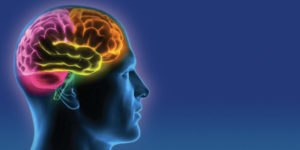What is Alcohol Use Disorder?

Alcohol Use Disorder (AUD), also commonly called alcoholism, is a chronic disease. Alcoholics have both a mental and physical dependence on alcohol that makes them unable to stop drinking, even when it produces negative effects. Alcohol addiction changes the chemistry of the brain, however treatment for alcoholism is available.
Oakvine Recovery Center offers a number of personalized treatments that can help you achieve long-term sobriety.
How Many Drinks Signal Alcoholism?
The National Institute on Alcohol Abuse and Alcoholism delineates the appropriate amount of drinks by gender. For women, moderate to low-risk alcohol consumption is no more than three drinks in a day or no more than seven drinks in a week. For men, those numbers increase slightly to no more than four drinks per day and no more than 14 drinks per week. If someone regularly drinks more than the suggested number, that person is considered at risk for alcohol abuse.
As far as what constitutes an “alcoholic drink,” the standard drink contains about 14 grams of pure alcohol. That equals 5 ounces of wine, 12 ounces of beer, 8 to 9 ounces of malt liquor or 1.5 ounces (one shot) of 80-proof spirits or “hard” liquor.
What are the Warning Signs of Alcoholism?
Our alcohol rehab in Austin sees the effects of alcoholism everyday. Alcohol use disorder can have a range of symptoms, from mild to severe. The signs to look for include:
- Inability to limit the amount of alcohol you drink
- Repeatedly, but unsuccessfully, trying to reduce the amount you drink
- Spending an abundance of time planning to drink, drinking, or recovering from the effects of drinking
- Strong cravings for alcohol
- Over time, you need to drink more to achieve the same effect
- Drinking despite evidence that it has a negative effect on your mental health such as irritability, depression or anxiety
- Physical withdrawal symptoms when you don’t drink, including sweating, shaking, and nausea
- You drink instead of participating in previous social activities and hobbies
- Drinking is causing issues in your relationships with family and friends
- No longer fulfilling professional or school obligations on a regular basis
- Drinking in situations that can cause harm, such as driving
What Types of Alcohol Addiction Treatment do you offer for Alcoholism?
Oakvine Recovery Center creates a customized recovery plan for every patient, depending on the severity of your symptoms. Some components we often use include:
- Cognitive behavioral treatments. Our clinicians help identify the behaviors that lead to drinking and prepare you to cope with them, through identifying triggers, skill development, building a support system and setting realistic goals on a regular basis.
- Behavioral therapy. Through this type of therapy, we focus on changing behaviors related to psychological distress.
- We also provide professional advice designed to help alcoholics change their harmful behaviors, problem-solve, and improve decisions.
- Support Groups. We emphasize that you are never alone in your recovery by creating support groups. You can learn from and share with others who suffer from Alcohol Use Disorder.
- Family therapy. Studies show that getting a patient’s family – biological or chosen – intimately involved in recovery can help lead to continued sobriety. Oakvine provides a comfortable setting and skilled professionals to help patients and their family members discuss the problem, the steps forward, and heal relationships.
Get Started Today
If you or someone you care about might be suffering from alcoholism, don’t wait for recovery to start. Oakvine’s alcohol and drug rehab Austin treatment center can help today. We’ll meet with you and your family members to honestly assess the situation and develop a personalized path to sobriety. We specialize in Alcohol Use Disorder and can work with you immediately.
Contact us here or call to get started!



